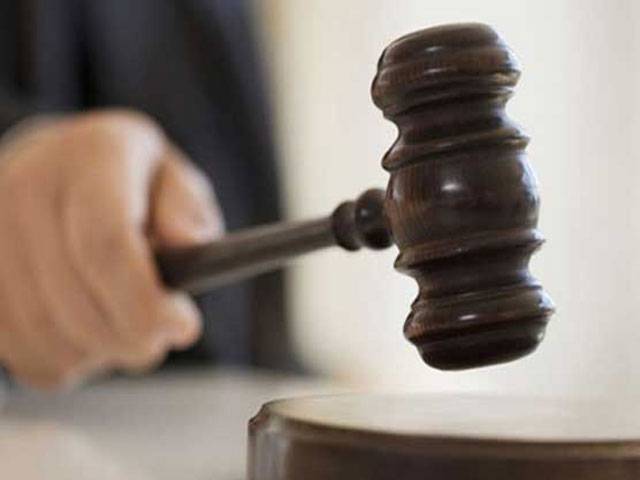ISLAMABAD - The prosecution informed the Special Court no summary was sent by the Prime Minister House to the former dictator General (retd) Pervez Musharraf for proclamation of emergency on 3rd November, 2007.
Akram Sheikh, the lead prosecutor, on Thursday informed the Special Court, established under Criminal Law Amendment (Special Court) Act 1976 for the trial of former President and ex-COAS under Article 6 of Constitution, that they have provided all the relevant necessary documents to the defence team.
He told that Masood Alam Rizvi, the then cabinet secretary, in his statement before the Joint Investigation Team, has said that the Prime Minister House did not send any summary to the President for imposing emergency. Four cabinet meetings were held before and after the Emergency but the issue of proclamation of emergency taken up for the first time on 6th November 2007. “It was not on the regular agenda but the additional item,” he said and added the senior advisor on Law and Justice and the Foreign Affair informed the cabinet about the emergency.
Justice Faisal Arab remarked this showed that the cabinet was least bothered about the emergency and the approval by the cabinet was ex post facto (after the fact).
He argued that the defence counsel’s contention that if Pervez Musharraf had imposed emergency as Chief of Army Staff on 3rd November then why General (retd) Ashfaq Pervaiz Kiyani after becoming COAS on 29 November 2007 lifted the emergency. He said Pervez Musharraf was wearing two hats - President and of COAS, and after promulgation of emergency he conferred all the power of revocation, rectification or amendment in the constitution to the President.
He said that it was possible to hide anything from the 14-member bench of Supreme Court and to produce it before the Special Court. About the original letter of Shaukat Aziz to Pervez Musharraf as army chief, the prosecutor said the then Attorney General for Pakistan Malik Abdul Qayyum had submitted the original letter before the court. He said even in that letter there was no mention of summary or file sent by the PM to the President for imposing emergency in the country.
He said whenever the court would consider any documents necessary it could summon it from the relevant departments. He said defence counsels demand to provide them certified copies of the documents is not appropriate as under Section 87 of Evidence Act they could get the attested copies of public documents themselves. They could also get the copy of the resolution from the Parliament Secretariat as under the tricotomy rule Parliament is independent and not under the executive authority.
He said yesterday (Wednesday) Farogh Naseem had argued that prima facie the case has been proved. He said that now the defence has to discharge the burden.
Akram Sheikh also contended that the defence counsel blamed that the prosecution have included the dissenting note of Hussain Asghar as additional note of the JIT. He said the defence counsels would have an opportunity to cross examine Hussain Asghar when he appear in the dock.
The court after hearing the arguments of Akram Sheikh reserved the judgment on providing additional documents to the defence team. The decision would be announced on 13th June.
The defence counsels have filed an application 21/2014 for additional documents including minutes of the 44th session of the National Assembly dated 7.11.2007, list of the cabinet members, including advisors and attorney general for Pakistan, governors, chief ministers, chief secretaries, home secretaries, inspector generals of police, members of the cabinet and provincial assemblies of all the four provinces, and the copy of the notification that replaced Musharraf with Kayani as COAS and the letter written by then PM Shaukat Aziz to the then president before emergency.
They also demanded the lists of all those persons visited Musharraf in the President House and the Army House Rawalpindi from 1st July 2007 to 3rd November 2007.
Friday, April 19, 2024
No PM advice sent to Mush for emergency, court told

Caption: No PM advice sent to Mush for emergency, court told
9:26 AM | April 19, 2024
UNICEF to provide $20m for youth projects in Pakistan
2:04 PM | April 19, 2024
Maryam reviews progress on Nawaz Sharif IT City project in Lahore
2:04 PM | April 19, 2024
Pakistan, Saudi Arabia vow to solidify efforts in defence collaboration
1:38 PM | April 19, 2024
Minister reviews naan, roti prices
April 19, 2024
ETPB land worth Rs 40b retrieved so far
April 19, 2024
A Tense Neighbourhood
April 19, 2024
Dubai Underwater
April 19, 2024
X Debate Continues
April 19, 2024
Hepatitis Challenge
April 18, 2024
IMF Predictions
April 18, 2024
Kite tragedy
April 19, 2024
Discipline dilemma
April 19, 2024
Urgent plea
April 19, 2024
Justice denied
April 18, 2024
AI dilemmas unveiled
April 18, 2024
ePaper - Nawaiwaqt
Advertisement
Nawaiwaqt Group | Copyright © 2024





